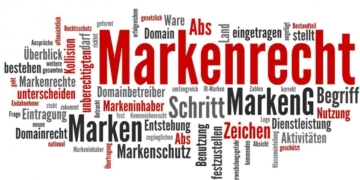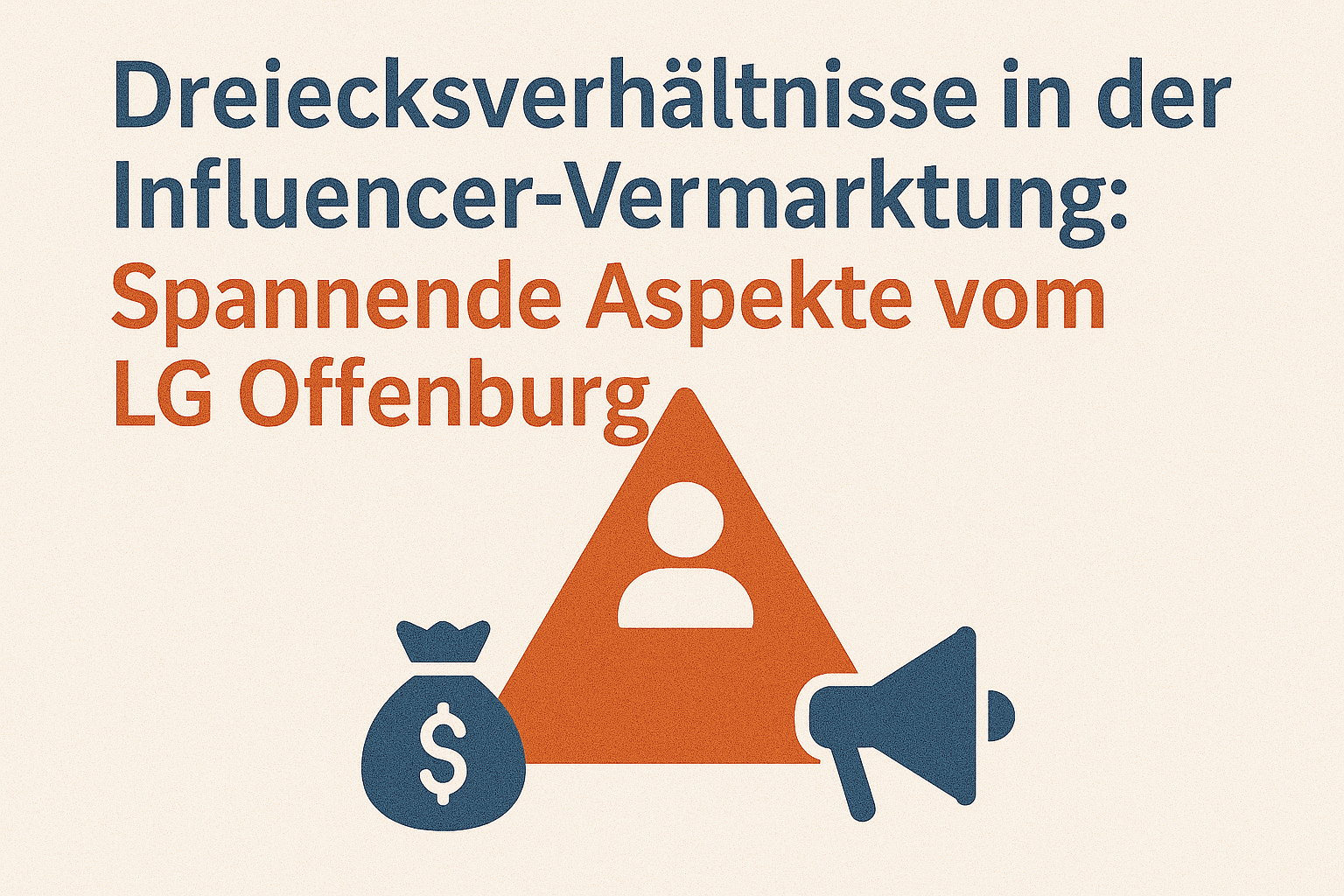- Digitalization is increasingly becoming a central topic for SMEs, offering opportunities and challenges in various areas.
- Customer proximity is improved by CRM systems and digital channels, but data protection implications must be taken into account.
- Efficiency is increased through modern software solutions; planning and adaptation of processes are crucial.
- Artificial intelligence optimizes processes and facilitates market access, but also increases legal risks.
- The GDPR places high demands on data protection; companies must ensure compliance
- IT security is essential to minimize the risks of cyberattacks and data loss.
- Employee training is crucial for successful digital implementations and legal aspects.
Introduction
Digitization has become a central topic in business in recent years, which is also manifested in the increasing number of mandate requests in this area. This phenomenon is not limited to large companies; medium-sized businesses are also increasingly confronted with the need to drive digital transformations. Given the growing importance of this topic, I will be attending the Bits & Pretzels conference later this month. This event serves as a forum for the exchange of expertise and experience and provides an excellent opportunity to familiarize oneself with the latest trends and developments. In this context, I will hold numerous meetings to discuss the specific needs and issues surrounding digitization in SMEs. Interestingly, many startups have already fully integrated digitization into their business models, in some cases even to the extent of neglecting the associated risks and legal challenges. In contrast, SMEs often still show a certain reluctance to implement digital strategies, which could be due to both a lack of knowledge and uncertainty in dealing with the legal framework. The implications of this development are complex, ranging from operational changes to legal challenges. It is evident that digitization brings not only opportunities, but also risks and legal pitfalls. This blog post aims to provide an overview of the key aspects, highlighting both the opportunities and the legal hurdles.
Opportunities of digitalization in medium-sized businesses
Efficiency increase
Digitization offers SMEs significant opportunities to increase operational efficiency. By using modern software solutions, work processes can be automated and optimized, leading to a reduction in manual errors and more efficient use of resources. This not only has an impact on productivity, but also on the company’s cost efficiency. In addition, digitization enables better data management, which in turn improves decision-making. It should be noted, however, that implementing digital solutions requires careful planning and adaptation of existing processes. The selection of the appropriate software and technology should be made in close coordination with the operational requirements. In addition, it is advisable to conduct a risk analysis to identify potential vulnerabilities and risks in advance. The integration of digital solutions may also require an adjustment of the corporate culture, as employees need to be trained and prepared for the new processes. Legal aspects, especially in the area of data protection and licensing, should also be carefully examined. Finally, it is advisable to implement in phases and evaluate regularly to ensure that the digital measures are achieving the desired effects.
Market access
Digitization opens up new ways for medium-sized companies to access the market. By using online marketing strategies and e-commerce platforms, products and services can be made available to a wider audience. This is particularly important for companies looking to expand their market presence or enter new markets. The ability to use digital distribution channels reduces barriers to market entry and enables faster scaling of the business. However, it is important to consider the legal framework, especially in the area of consumer protection and data protection regulations. It is interesting to note that all these aspects interact in a complex way. While improved market access through digitization increases reach and thus business opportunities, it also increases risk in terms of IT security. The more digital channels are used, the more vulnerable the company becomes to potential cyberattacks or data leaks. In addition, easier market access can also intensify competition for qualified workers, as companies with a strong digital presence are often more attractive to potential employees. This in turn may lead to an increase in personnel costs, which could affect the company’s cost efficiency. It is therefore crucial to develop a holistic strategy that takes into account not only the opportunities, but also the associated risks and challenges.
Customer proximity
Digitization enables more intensive and efficient interaction with customers. By using customer relationship management (CRM) systems, customer relationships can be systematically analyzed and optimized. This enables a more individualized approach and can lead to an increase in customer satisfaction and loyalty. In addition, digital channels such as social media and email marketing offer the opportunity to get real-time customer feedback. This is a valuable tool for the continuous improvement of products and services. It should be noted, however, that the use of these channels may also have data protection implications that need to be carefully considered. In addition, increased customer interaction can also lead to higher customer expectations that need to be managed. The ability to provide quick and easy feedback can also lead to an increase in complaints or negative reviews that are publicly visible and can affect a company’s image. In this context, modern technologies such as AI chatbots and other automated tools offer additional opportunities to optimize customer service. These can handle inquiries around the clock, providing added value for both the company and its customers. However, companies should also consider the legal aspects when implementing such technologies, especially in the area of data processing and storage. It is therefore important to have effective complaint management and reputation management in place. The digitization of customer interaction also requires an adjustment of internal processes to ensure that the data collected can be used effectively. This may require the introduction of new software tools, but also training for employees to learn how to use the new systems. Finally, the implementation of digital customer interaction channels should be integrated into the overall business strategy to create synergies and maximize efficiency.
Data Analysis
The ability to collect and analyze large amounts of data is one of the key benefits of digitization. By using Big Data and analytics tools, companies can gain deeper insights into their business processes and customer relationships. This enables data-driven decision making, which in turn leads to improved competitiveness. However, it is important to observe the data protection regulations, in particular the DSGVO, when collecting and processing data. In addition, technologies such as artificial intelligence and machine learning are opening up new possibilities for data analysis by identifying complex patterns and enabling predictions that go beyond traditional analytical methods. However, these advanced technologies can also raise ethical and legal issues, such as discrimination or unfair business practices. Companies therefore need to carefully consider how they use these technologies and what impact this might have on their stakeholders. The storage and processing of large amounts of data also requires robust IT security measures to prevent data loss or theft. This is particularly critical, as data breaches not only have legal consequences, but can also significantly affect the trust of customers and partners. Finally, it is critical that employees are trained in the fundamentals of data analytics and understand how to translate insights into operational decisions. This is the only way to exploit the full potential of data analytics and turn it into sustainable business success.
Artificial Intelligence (AI)
Artificial intelligence offers SMEs a wide range of possible applications, from the automation of processes to data analysis. AI systems can identify complex patterns in big data, providing valuable insights for business strategy. In addition, AI-driven systems can be used in areas such as customer service and quality control. It should be noted, however, that the use of AI also raises legal issues, particularly with regard to data protection and liability. In addition to opening up new business models, AI can make existing processes and structures significantly more efficient. For example, modern production methods can be optimized by AI systems that make adjustments in real time to improve production line utilization. Digital order management can also be revolutionized by AI by making predictions about the order situation and allocating resources accordingly. Other opportunities include supply chain optimization, personalization of marketing campaigns, and even improving energy efficiency through smart building management systems. AI can also play a role in financial planning and risk management by identifying trends and generating recommended actions. All these applications can not only increase efficiency, but also sustainably improve the company’s competitiveness. However, it is critical that companies looking to implement AI conduct a careful risk and opportunity assessment and are aware of the regulatory framework.
Industry 4.0 and internationalization
The fourth industrial revolution, also known as Industry 4.0, offers SMEs the opportunity to optimize production processes through the integration of information technology. Interestingly, this trend is heavily influenced by the rise of artificial intelligence. For example, AI systems can analyze production data in real time and automatically make adjustments to increase efficiency. This leads to increased efficiency and enables more flexible adaptation to market requirements. In addition, digitization offers the opportunity for internationalization. By using digital platforms, products and services can be marketed globally, opening up new growth opportunities. However, it is important to consider the legal framework of the respective target market. In addition, the networking of machines and systems as part of Industry 4.0 allows better monitoring and maintenance of production facilities, resulting in higher product quality and less downtime. The implementation of IoT (Internet of Things) devices can also help increase efficiency by, for example, optimizing energy consumption or controlling material flow. However, companies must also consider the security risks that come with increased connectivity, including potential cyberattacks on critical infrastructure. Finally, it is critical that employees are trained to work in a digitized production environment in order to realize the full potential of new technologies. Only by taking a holistic view of all aspects – from the technological possibilities to the legal framework – can companies fully exploit the benefits of Industrie 4.0.
Legal hurdles and challenges
Privacy
Compliance with the General Data Protection Regulation (GDPR) is one of the key legal challenges in the context of digitalization. The regulation sets strict requirements for the processing of personal data and provides for heavy fines in case of violations. Companies must therefore ensure that their digital processes and systems comply with data protection requirements. This requires careful analysis of data flows and the implementation of data protection measures such as encryption and access controls. In addition, it is important that all employees are trained in handling personal data. Data protection officers should regularly review the status of data protection measures. Collaboration with external service providers must also be considered from a data protection perspective. Documentation of data protection measures is not only a legal requirement, but is also important in the event of audits or data protection incidents. Finally, it is advisable to conduct regular data protection audits to ensure compliance.
Copyright
In the digital context, copyright is of particular importance. The use of software, image material or texts must be in accordance with copyright regulations. This requires a careful review of the license agreements and, if necessary, obtaining rights of use. Copyright infringements can lead not only to legal consequences, but also to reputational damage. It is therefore important that companies have a clear copyright strategy. This should include regular review of license agreements and updating of licenses. When developing your own software or content, you should also pay attention to copyright compliance. Documentation of license agreements and archiving of evidence of permitted uses are essential. Finally, it makes sense to train employees on copyright issues to minimize risks.
IT Security
Increasing networking and digitalization increase the risk of cyber attacks and data theft. Companies must therefore invest in appropriate security measures to protect their systems and data. This includes both technical measures such as firewalls and encryption as well as organizational measures such as training and emergency plans. Failure to comply with safety standards can result in significant financial and legal consequences. Proactive security management is therefore essential. This also includes regular updating of software and security systems. Companies should also have a contingency plan in the event of a cyberattack. Involving IT security experts, both internal and external, can help keep security measures up to date. Finally, it is important that all employees are trained in IT security issues, as human error is often a weak point. In addition to external hedging, internal hedging is also critical. For example, mechanisms should be implemented to prevent programmers from copying trade secrets or code to external platforms such as Github. For example, data loss prevention systems or special access controls can be used to ensure that sensitive data does not leave the corporate network.
Liability
Digitalization brings with it new liability risks. Particularly when processes are automated by software or AI systems, the question of liability arises in the event of errors or failures. Companies must therefore carefully examine their liability risks and anchor appropriate liability exclusions in contracts. In addition, the conclusion of a suitable liability insurance is recommended. It is also important to define clear responsibilities within the company, especially if external service providers are involved. Documenting all processes and decisions can be critical in the event of litigation. Therefore, companies should ensure that all relevant information is carefully archived. It is also advisable to conduct regular legal reviews to ensure that the company is in compliance with current legal requirements. Finally, companies should also consider arbitration or mediation to efficiently resolve potential disputes.
Training and education of employees
The successful implementation of digital technologies requires employees to be appropriately qualified. This includes both technical training and raising awareness of legal aspects such as data protection and IT security. Investing in employee training is therefore a critical factor for the success of digitization. Companies should implement and regularly update appropriate training programs. It is also important to periodically review the effectiveness of this training and make adjustments as necessary. Bringing in outside experts for specialized training can also be beneficial. In addition, companies should foster a culture of continuous learning to ensure that employees are always up to date. Involving employees in the digitization process through regular feedback rounds and the opportunity to participate in decision-making processes can also contribute to successful implementation.
AI and law
The application of artificial intelligence raises a number of legal issues that need to be carefully considered. This includes, in particular, questions of liability in the event of erroneous decisions by AI systems as well as aspects of data protection law. The processing of personal data by AI systems must be in compliance with data protection regulations, and it must be clearly regulated who is liable in the event of an error. In addition, AI systems may also raise ethical issues, such as discrimination or transparency. Companies should therefore develop ethical guidelines for the use of AI. Involving legal experts in the development and implementation of AI systems is strongly recommended. It is also important that companies consider the impact of AI on the workforce, particularly in terms of job loss or changes in job requirements. Finally, companies should also consider the social impact of AI and strive to use this technology responsibly.
Conclusion
Digitization offers considerable opportunities for SMEs, but also presents companies with a number of legal challenges. Careful planning and legal advice are therefore essential to fully exploit the benefits of digitization and minimize legal risks. As a lawyer with a particular affinity for technology – you could well call me a nerd – I bring not only legal expertise but also a deep understanding of the technological aspects of digitization. This combination enables me to advise companies holistically and address both the technical and legal challenges.
My many years of experience in the field of digitalization make me a competent partner for medium-sized companies that want to take the step into the digital world or optimize their existing digital strategies. I can help clarify the legal framework, draft contracts, and answer data protection and copyright questions. In addition, I can advise on the implementation of IT security measures and support companies in complying with the relevant legal requirements.
It is important to emphasize that consulting on digitization in SMEs is usually a long-term mandate. This means that relevant legal fees may well be incurred. However, this should be viewed in the context of the enormous opportunities offered by digitization. The competitive advantage that can be achieved through a successful digitization strategy is often so significant that the investment in qualified legal advice is more than justified. In the worst case, failing to digitize can even lead to a significant competitive disadvantage that could threaten the company’s existence in the long term.
For further questions and individual advice I am at your disposal.




















